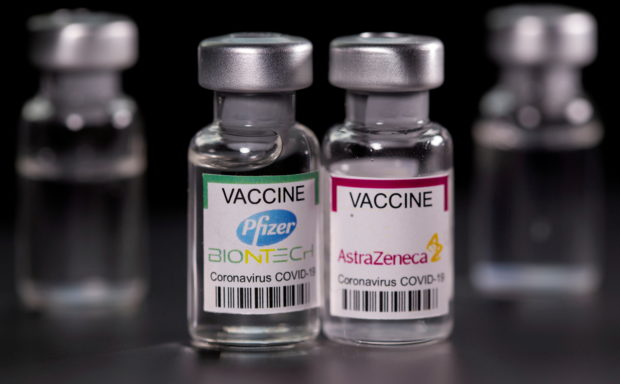COVID-19 jab protection wanes within six months–UK researchers

Vials with Pfizer-BioNTech and AstraZeneca coronavirus disease (COVID-19) vaccine labels are seen in this illustration picture taken March 19, 2021. REUTERS FILE PHOTO
LONDON — Protection against COVID-19 offered by two doses of the Pfizer/BioNTech and the Oxford/AstraZeneca coronavirus vaccines begins to fade within six months, underscoring the need for booster shots, according to researchers in Britain.
After five to six months, the effectiveness of the Pfizer jab at preventing COVID-19 infection in the month after the second dose fell from 88% to 74%, an analysis of data collected in Britain’s ZOE COVID study showed.
For the AstraZeneca vaccine, effectiveness fell from 77% to 67% after four to five months.
The study was based on data from more than 1.2 million test results.
Previous analysis of data has suggested that vaccines provide protection for at least six months.
Article continues after this advertisementUnder a worst-case scenario, protection could fall below 50% for older people and healthcare workers by the winter, Tim Spector, principal investigator for the ZOE COVID study, said.
Article continues after this advertisement“It’s bringing into focus this need for some action. We can’t just sit by and see the protectiveness slowly waning whilst cases are still high and the chance of infection still high as well,” Spector told BBC television.
Britain is starting to plan for a COVID-19 vaccine booster campaign later this year after top vaccine advisers said it might be necessary to give third shots to the elderly and most vulnerable from September.